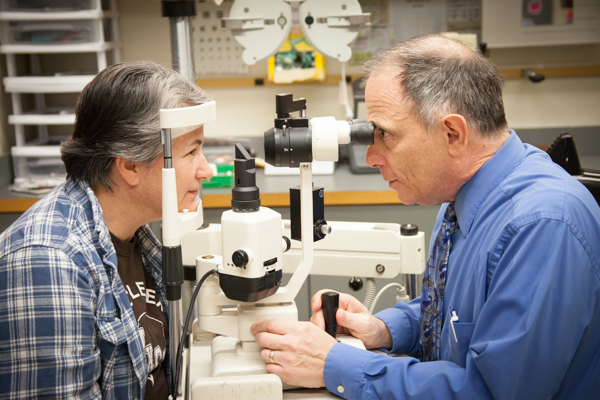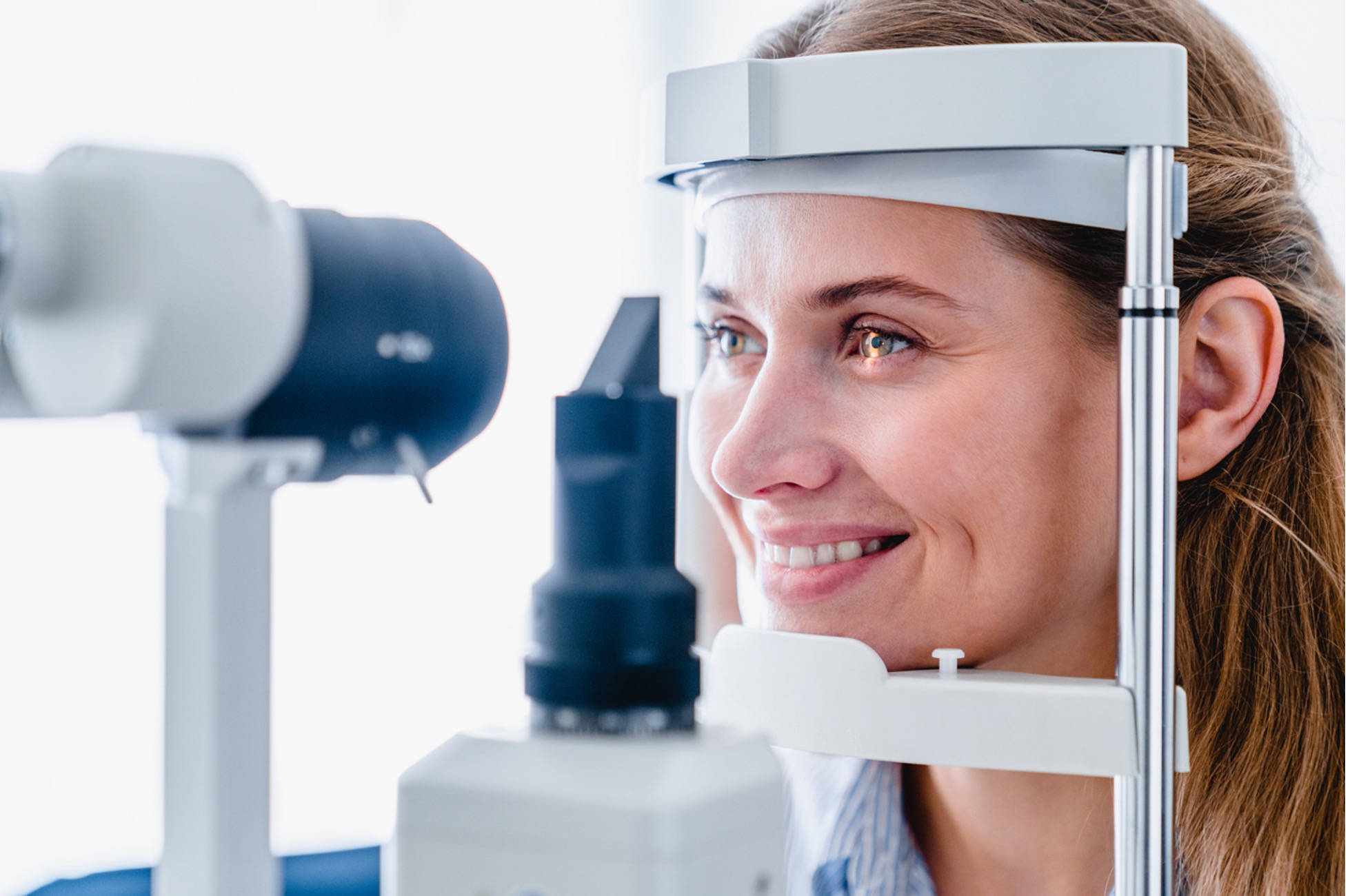Comprehensive Retina Service Near Me: Advanced Eye Health Care
Comprehensive Retina Service Near Me: Advanced Eye Health Care
Blog Article
Comprehending the Different Eye Issues Dealt With by Specialized Eye Care Professionals
In the realm of eye care, specialized professionals play an essential role in diagnosing and dealing with a broad selection of eye problems. From common refractive mistakes that affect vision quality to age-related problems that pose obstacles as we age, the expertise of these specialists includes taking care of vision-threatening illness and intricate corneal problems. The complexities of neurological eye problems present one-of-a-kind difficulties that demand specialized care. As we start this exploration of the different eye conditions attended to by specialized eye care professionals, it comes to be apparent that the detailed web of eye health holds a myriad of remarkable insights waiting to be revealed.
Typical Refractive Mistakes
Refractive errors are usual aesthetic conditions caused by an imperfection in the eye's ability to appropriately concentrate light, resulting in blurred vision. Astigmatism is characterized by an irregularly designed cornea, resulting in altered or blurred vision at all distances. Presbyopia is an age-related problem where the lens loses its flexibility, making it difficult to concentrate on close items.
These refractive errors can be remedied through numerous techniques, consisting of glasses, contact lenses, or refractive surgical procedure. Eye care specialists play a vital role in identifying and managing refractive errors to aid individuals accomplish clearer vision and enhance their lifestyle.
Age-Related Eye Problems
As people age, their eyes may be prone to a variety of conditions past refractive mistakes that can affect their vision and total ocular health and wellness. Age-related eye problems are common and can substantially influence the lifestyle for older grownups. Among the most widespread age-related eye conditions is age-related macular deterioration (AMD), a disease that triggers main vision loss and can make tasks like reading and driving difficult. refractive surgeries in al. Cataracts, an additional common problem amongst older individuals, create clouding of the eye's natural lens, bring about blurred vision. Glaucoma, identified by damage to the optic nerve, is likewise more prevalent with age and can cause field of vision loss or loss of sight if left unattended. In addition, presbyopia, a problem where the eye's lens sheds adaptability, is a natural part of aging and brings about difficulty concentrating on close things. Normal eye examinations with specialized eye care professionals are important for very early detection and management of these age-related eye conditions to preserve vision and maintain ocular health as individuals get older.
Vision-Threatening Illness
Vision-threatening diseases encompass a series of serious eye conditions that have the prospective to considerably impact a person's vision and overall aesthetic feature. These diseases pose a threat of irreversible vision loss if not promptly detected and dealt with by specialized eye care specialists. Some typical vision-threatening diseases consist of glaucoma, diabetic retinopathy, age-related macular degeneration (AMD), and retinal detachment.
Glaucoma blog here is a group of eye problems that damage the optic nerve, often as a result of high intraocular pressure, leading to outer vision loss and possible loss of sight if left untreated. Diabetic retinopathy is a problem of diabetic issues that impacts blood vessels in the retina, causing vision problems or loss of sight. AMD is a modern condition influencing the macula, causing main vision loss. Retinal detachment happens when the retina divides from its underlying site tissue, causing abrupt vision loss that calls for prompt clinical attention (refractive surgeries in al).
Very early detection, routine eye tests, and timely treatment are critical in handling vision-threatening conditions to preserve vision and keep lifestyle. Specialized eye care experts play an important duty in diagnosing, treating, and managing these problems to avoid irreversible vision loss.

Corneal Problems
Corneal conditions encompass a range of conditions that influence the transparent front component of the eye, called the cornea. These problems can result in pain, visual disruptions, and in severe situations, vision loss. One common corneal condition is keratoconus, where the cornea thins and protrudes outside right into a cone shape, triggering astigmatism and obscured vision. Corneal dystrophies, such as Fuchs' dystrophy, lead to steady vision loss as a result of unusual deposits in the cornea. Corneal abrasions, commonly brought on by injury or international things, can result in discomfort, soreness, and sensitivity to light. Additionally, infections like keratitis can irritate the cornea, possibly leading to scarring and vision disability otherwise promptly treated. Therapy for corneal problems varies depending upon the certain problem yet might consist of drugs, call lenses, or in severe situations, corneal transplants. Regular eye examinations are crucial for early detection and management of wikipedia reference corneal problems to maintain vision and eye wellness.
Neurological Eye Conditions
Neurological eye conditions involve disorders that affect the connection between the eyes and the brain, affecting aesthetic handling and total eye function. These conditions can manifest in various ways, impacting vision, eye movements, and also the control in between the eyes. One typical neurological eye problem is optic neuritis, characterized by swelling of the optic nerve causing vision loss, color desaturation, and pain with eye movement.
An additional substantial problem is nystagmus, where the eyes make repeated, uncontrolled movements, influencing aesthetic skill and depth perception. In addition, problems like amblyopia, commonly referred to as "lazy eye," arise from irregular visual growth in very early youth, causing minimized vision in one eye.
Neurological eye conditions require customized care from professionals like neuro-ophthalmologists that have expertise in both neurology and ophthalmology. Medical diagnosis typically involves a thorough eye assessment, imaging studies, and cooperation with neurologists to resolve the underlying neurological problems affecting the aesthetic system. Treatment techniques can include medication, vision treatment, or in serious instances, surgical treatments to manage these intricate conditions successfully.

Final Thought
In final thought, specialized eye care professionals deal with a wide variety of eye conditions, including usual refractive mistakes, age-related eye conditions, vision-threatening conditions, corneal problems, and neurological eye conditions - refractive surgeries in al. By understanding these numerous problems and seeking ideal therapy from eye care specialists, people can preserve optimal eye wellness and vision. It is vital to prioritize normal eye assessments and follow advised treatment strategies to preserve and protect one's vision for the future
Report this page